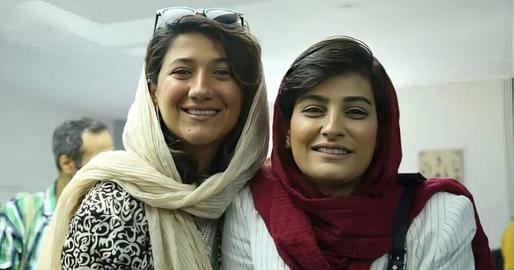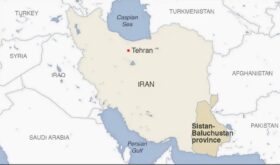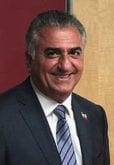Al-Monitor – Three journalists are set to go on trial in Iran on Monday, leading to condemnation from an international human rights watchdog.
Journalists Saeideh Shafiei, Mehrnoush Zarei Henzaki and Nasim Sultan Beigi face up to 10 years in prison on “vague” national security and propaganda charges under articles 500 and 610 of Iran’s penal code, according to Human Rights Watch.
Shafiei, an economic journalist for Iranian media, was arrested in Tehran on Feb. 22 and released on bail on March 8. The charges against Shafiei relate to her coverage of poverty and alleged government mismanagement.
Henzaki was arrested in Tehran on Jan. 22 and released on bail on Feb. 15. Her charges relate to her coverage of reproductive laws and parks.
Beigi was arrested on Jan. 11 at Tehran’s international airport while attempting to leave the country. She was released on bail on Feb. 6. Her charges relate to her work with several domestic and international news outlets as well as her promotion of Iranian women removing their hijab. Beigi was previously arrested in 2006 and 2007 as well as 2012 and 2013 for her activism.
“Iran’s judiciary has once again begun summoning and harassing journalists and human rights defenders, punishing anyone who refuses to remain silent,” said Tara Sepehri Far, senior Iran researcher at Human Rights Watch, in a press release. “The authorities have been relentless in prosecuting and punishing anyone reporting on the social issues and grievances that were central to the protests over the last months.”
Relatedly, Agence France-Presse reported on Sunday that activist and journalist Golrokh Iraee was sentenced to five years in prison. Iraee was arrested in September at the start of the protests on charges related to national security and illegal gatherings.
Why it matters: There are well-documented infringements on press freedom in Iran, and the issue has been getting worse since widespread anti-government protests and riots began last September. The protests began after the death of Kurdish woman Mahsa Amini in police custody. Amini had been arrested for allegedly wearing her hijab improperly.
Several journalists have been arrested and put on trial since then. In late May, the trial of journalists Niloufar Hamedi and Elaheh Mohammadi began. Both were arrested in September for covering Amini’s case, according to AFP.
In March, the pro-opposition Iran International reported that journalist Ali Pour-Tabatabaie, who reported on the poisoning of Iranian schoolgirls, was arrested.
On Friday, the Kurdish-Iranian human rights organization Hengaw reported that authorities extended the detention of journalist and women’s rights activist Zhina Modaresgorji.
Reporters Without Borders ranks Iran 177th out of 180 countries in terms of press freedom.
“Iran has reinforced its position as one of the world’s most repressive countries in terms of press freedom,” read the organization’s profile on Iran. “Iran is now also one of the world’s biggest jailers of journalists.”
There is little independent media in Iran, with many outlets being controlled by the government. Many Iranians rely on media from abroad as a result, according to Reporters Without Borders.
The arrest of journalists is part of a widespread crackdown since the protests began. Tens of thousands of people have been arrested since last September in relation to the protests.
Iran’s Supreme Leader Ayatollah Ali Khamenei announced an amnesty for numerous protesters in February. In March, Iran announced that more than 22,000 had been pardoned, though there was no independent confirmation of this, The Associated Press reported at the time.
Some of those released have been summoned again, according to Human Rights Watch.
Organizations such as Amnesty International have reported on executions of protesters in recent months.
“The Iranian authorities must understand, in no uncertain terms, that the world will not simply stand by as they intensify their use of the death penalty as a tool of political repression,” the organization said in March following the execution of three protesters.
Know more: Internet and social media are also heavily restricted in Iran. Authorities cut internet access during the protests that began last year, and sites such as Twitter are banned, though government officials regularly use the latter.
Iran is one of the top blockers of virtual private networks (VPNs) in the world. Iranians use VPNs to access content that is restricted in the country.
 Shabtabnews In this dark night, I have lost my way – Arise from a corner, oh you the star of guidance.
Shabtabnews In this dark night, I have lost my way – Arise from a corner, oh you the star of guidance.



